Disease Inquiry, Health Guidance, Classic Health Preservation, No Need to Seek Help When Sick
Friends should know the famous Sun Simiao, who was also weak and sickly in his youth, but he lived to be 120 years old, with some even claiming he lived to 140. This is considered a long life in ancient times.
So friends, you must have confidence and not be frightened by various forms of “deficiency.” Since the moment a person is born, they begin a long journey of “deficiency.” We must learn to coexist with “deficiency,” avoid overexertion, follow nature, maintain a good mindset, and we can also enjoy longevity.
How to Distinguish Between Yin Deficiency and Yang Deficiency
This topic is vast, encompassing everything from Yin-Yang and the Five Elements to cold and heat, all of which can be categorized under Yin and Yang.
In the cold winter, some people feel cold all over, especially their hands and feet. Why do some people feel fine in thin clothing while you, bundled up like a polar bear, still have cold hands and feet? An experienced TCM doctor would say: “Dear, you have Yang deficiency!”

What is Yang Deficiency?
Yang deficiency refers to the decline of Yang Qi in the body, leading to reduced or weakened functions, decreased metabolic activity, and low reactivity, which is a pathological phenomenon of insufficient Yang heat.
In the early stages of Kidney Yang deficiency, one may easily have nightmares or experience sleep paralysis.
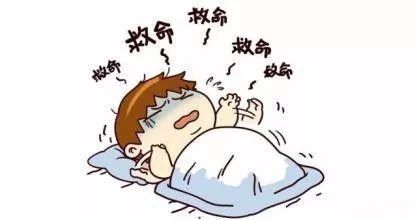
In the mid to late stages, symptoms of Kidney Yang deficiency include “cold,” soreness or pain in the lower back and knees, aversion to cold, cold limbs, mental fatigue, difficulty urinating or incontinence, nocturnal enuresis, decreased male sexual function, potential impotence, female infertility, and sometimes edema, mental fatigue, pale tongue, and obesity.
The lower abdomen feels cold, drinking cold water is uncomfortable, and sitting on a cold bench causes an indescribable discomfort in the perineum;
Men may experience decreased sexual function and potential impotence;
The lower limbs may feel swollen and cold, while the upper body shows signs of heat, such as acne or tooth pain, or sores on the tongue and mouth;
Frequent sweating, especially during meals;
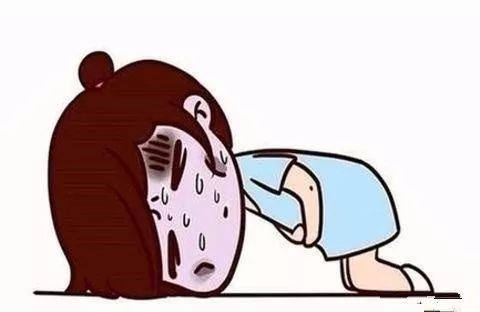
Women may also experience dysmenorrhea, and during menstruation, they may sweat profusely and need to use a hot water bottle on their abdomen to feel better. Menstrual blood may contain dark clots, and there may even be black clots;
Some individuals may have dark circles, especially under the eyes.
If you have the above symptoms, you can basically determine that you have Kidney Yang deficiency.
Where there is Yang, there is Yin; let’s take a look at Yin Deficiency!
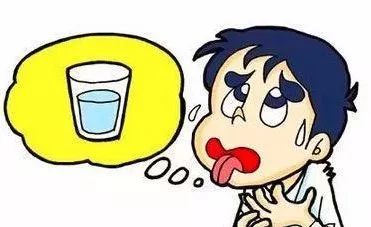
Symptoms of Yin deficiency include “heat,” primarily manifesting as lung heat, dry throat, soreness in the lower back and knees, dizziness or tinnitus, decreased hearing, dry mouth and throat, irritability, heat in the palms and soles, night sweats, dry stools, and nocturnal emissions in men. The pulse may be weak or rapid, and the tongue coating may be red. Most of these individuals tend to be more extroverted and active, with a relatively irritable temperament. This constitution is more common in windy, dry, and high UV radiation areas, often seen in students and young people, which is also related to their dietary habits, such as a preference for fried, grilled, or barbecued foods, as well as smoking, drinking, and increased life stress.
Quickly distinguish between Yin deficiency and Yang deficiency; let’s test it out!
1. Observe the tongue
Yin deficiency: red tongue, thin shape, little coating; Yang deficiency: pale tender tongue, fat shape, white thick coating.
2. Observe the spirit
Yin deficiency: dry heat and restlessness, easily angered; Yang deficiency: aversion to cold, cold limbs, shortness of breath, reluctance to speak, depression, fatigue, prone to tears.
3. Observe cold and heat
Yin deficiency: fear of heat, sweating profusely, hot palms; Yang deficiency: fear of cold, sweating coolly, cold hands and feet.
4. Observe pain
Yin deficiency: persistent lower back soreness; Yang deficiency: cold pain in the lower back, worsened by cold.
5. Observe complexion
Yin deficiency: red cheeks, crimson eyelids; Yang deficiency: pale, dull complexion.
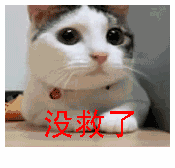
So… some friends might say they feel symptoms of both Yin deficiency and Yang deficiency; what does that mean?
Then you have a problem; this is a combination of Yin deficiency and Yang deficiency—both Yin and Yang deficiency!

If Kidney Yang deficiency is not treated promptly and effectively, it can develop into a chronic condition, leading to both Kidney Yin and Yang deficiency, and depleting the essence and Qi of the kidneys, known as the syndrome of both Kidney Yin and Yang deficiency. This syndrome develops from Kidney Yang deficiency, presenting with symptoms of both Kidney Yang deficiency and clinical manifestations of Kidney Yin deficiency, such as soreness in the lower back and knees, tidal heat, and restlessness.
Now that you know your constitution, the next important step is the method of nourishment.
How to regulate Yang deficiency?

1. In terms of diet, eat more warming foods: grains like flour, sorghum, glutinous rice; meats like lamb, beef, chicken, dog meat, venison, sparrow, rooster; fish like grass carp, crucian carp; vegetables like leeks, mustard greens, cilantro, pumpkin, ginger; nuts like walnuts, pine nuts, cashews, peanuts; fruits like lychee, longan, peaches, jujubes, walnuts, oranges, cherries. Also, eat some cooked radishes, cabbage, celery, and greens to avoid excessive heat from over-supplementation. When eating greens, use warming spices like ginger, garlic, and pepper. Astragalus (Huang Qi) and goji berries (Gou Qi) can be used as ingredients in soups. Elderly individuals with weakness can use cordyceps (Chong Cao) and ginseng (Ren Shen) in small amounts multiple times for nourishment.
2. “Movement generates Yang”; strengthen physical exercise, choosing suitable activities and intensity, such as yoga, Tai Chi, or Five Animal Frolics.
3. Acupoint health care
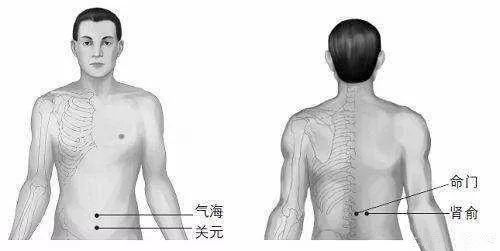
(1) Selected points: Guanyuan (CV4), Mingmen (GV4).
(2) Location: Guanyuan is located three inches below the navel (measured horizontally with your hand, four finger widths down is Guanyuan point). Mingmen is located in the lower back, at the depression below the spinous process of the second lumbar vertebra.
(3) Operation: Apply pressure with the palm, keeping the wrist relaxed, using small circular motions with the wrist and forearm. The pressure should be gentle, with a frequency of about 120-150 times per minute, pressing each point for 2-3 minutes, once or twice a day. You can also combine this with kidney warming techniques, rubbing the sides of the lower back with the palm or fist for about 10 minutes until the skin feels warm, once a day.
How to nourish Yin deficiency?
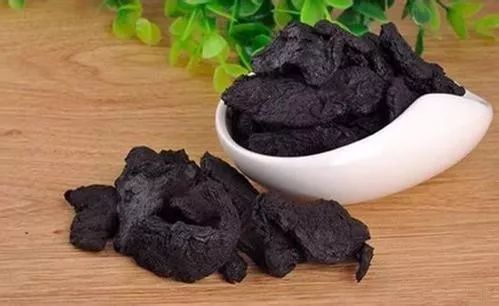
Individuals with Yin deficiency should consume foods that nourish Yin and provide a sweet and moistening effect, such as sesame, glutinous rice, honey, dairy products, sugarcane, fish, lean pork, duck, turtle, soft-shelled turtle, mung beans, winter melon, sesame, and lily bulbs. They should avoid greasy, rich, and spicy foods, such as scallions, ginger, garlic, and peppers, as well as warming foods like lamb, dog meat, leeks, and sunflower seeds.
They should engage in moderate, intermittent physical exercise, such as Tai Chi or Tai Chi sword. During exercise, control sweating and replenish water in a timely manner.
For those with both Yin and Yang deficiency, attention should be paid to:
Treat with the Right Return Decoction, which includes: Rehmannia (Shu Di), Chinese yam (Shan Yao), Chinese wolfberry (Gou Qi), Eucommia (Du Zhong), licorice (Zhi Gan Cao), Aconite (Fu Zi), and cinnamon (Rou Gui). This formula nourishes both Yin and Yang, benefiting the kidneys and replenishing essence. Strictly speaking, the syndrome of Kidney Yin deficiency combined with Kidney Yang deficiency is primarily Kidney Yin deficiency, thus treated with the Left Return Decoction.
The best thing for everyone to do, with no side effects, is to soak your feet every night. Soak your feet half an hour before bed, adding some warming materials, and you will feel warm all over.
I want to remind everyone not to over-supplement while depleting; there are no miraculous doctors in this world, and the true miraculous doctor exists in your heart. Only you can heal your own ailments.
Finally, I wish all dear friends a good mood every day, and may you not feel deficient anywhere.

Follow Mai Mai Health to inquire about the following diseases (Disease Search)
Childhood fever, childhood diarrhea, night crying, pediatric massage, pediatric knowledge,lower back pain, male health, kidney tonifying diet, strengthening lower back exercises, lumbar disc herniation, back pain, leg pain, cervical spondylosis, liver disease, liver health, hangover relief, stomach disease, constipation,lower abdominal protrusion, gynecology, menstrual care, breast hyperplasia, breast cancer, postpartum care, acne, white hair, hair loss, breast enhancement, beauty, skin diseases,gallstones, pharyngitis, gout, toothache, snoring, oral ulcers, rhinitis, eye diseases, hands and feet, colds, cough, insomnia, hemorrhoids,cerebral hemorrhage, hypertension, diabetes, heart disease, cardiovascular diseases, cancer,food properties, blood tonifying, weakness, obesity, slim legs, slim waist, dampness, meridians, Chinese patent medicine, hiccups
Diagnosis:Dialectical diagnosis, back diagnosis, facial diagnosis, acne, menstruation, tongue diagnosis, blue veins, sweat diagnosis, eye diagnosis, nails, navel (finding the cause)
Treating Hundreds of Diseases:Meditation, stretching, back rolling, gua sha, tapping, cupping, gallbladder meridian tapping, rubbing the earth muscle, vinegar-soaked eggs, abdominal moxibustion, ginger, acupressure, folk remedies, moxibustion, high leg raises

